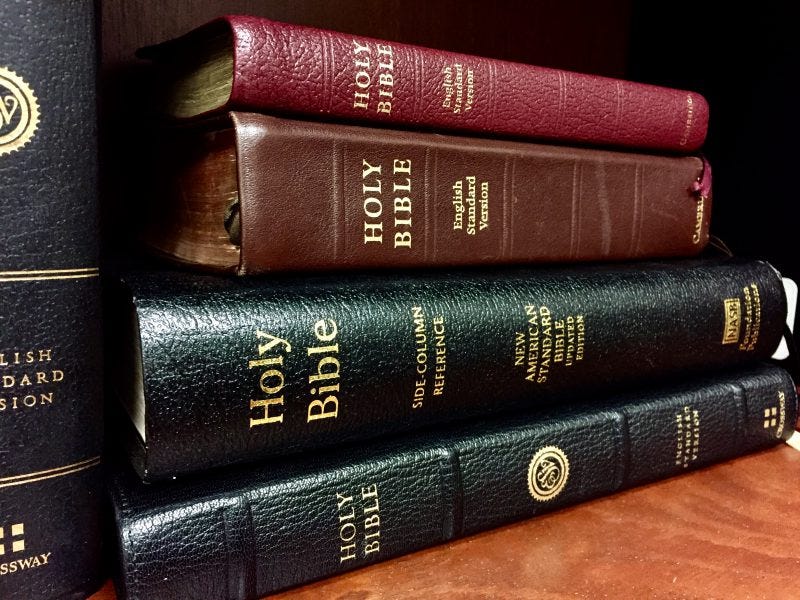A Case for Using Physical Bibles
Why I'm still leather-bound.
Recently I was sitting in a worship service and looked around me. For every physical Bible opened I saw at least one or two smartphones glowing softly. I’m not sure why, but this was surprising. Is the Bible app really that common in evangelical worship? I guess it is. Not long after this I took a more deliberate notice in my small group of who had Bibl…



